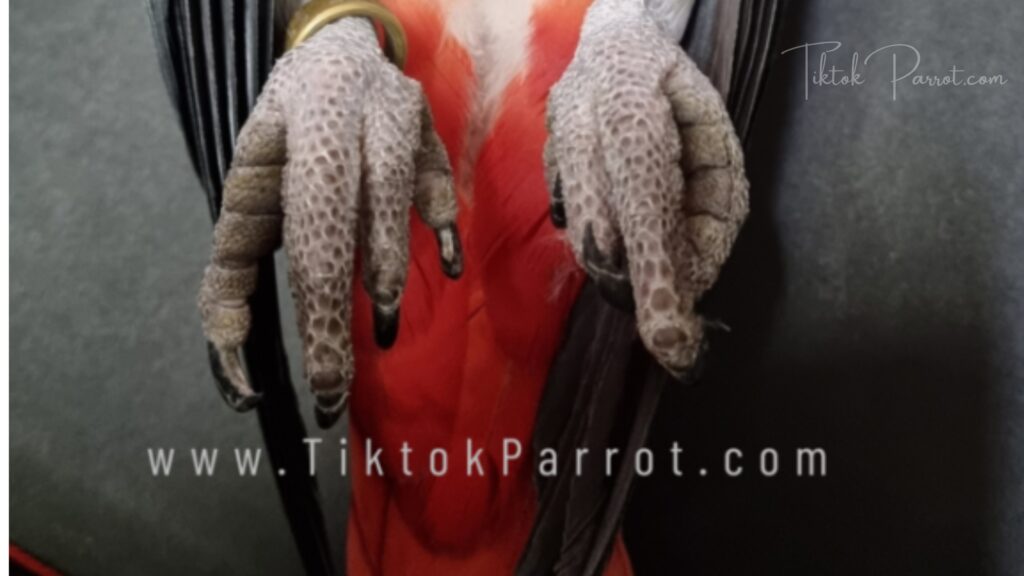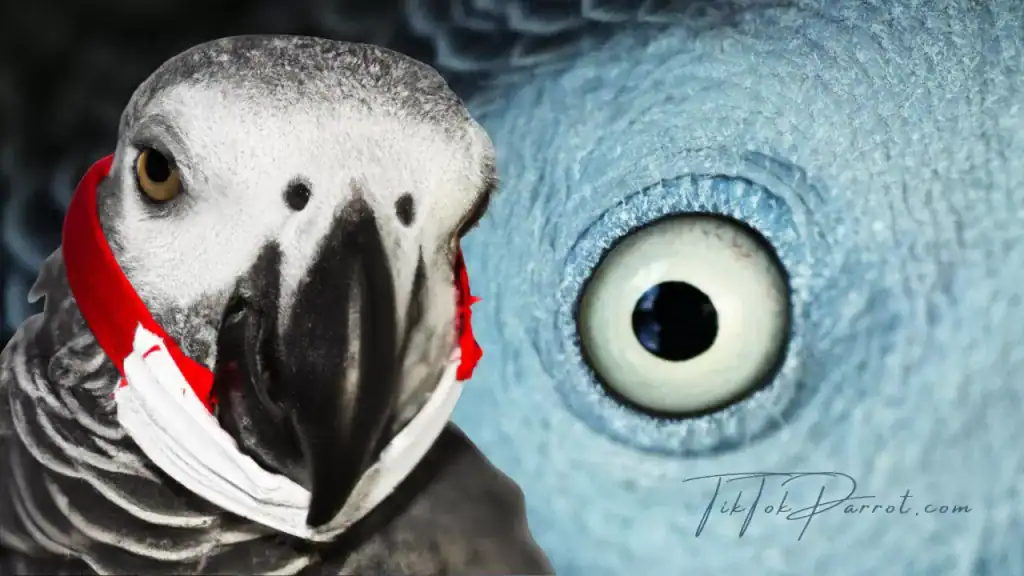Losing a beloved African Grey parrot is a heart-wrenching experience for any pet owner as I have been through this stage. As caretakers, it’s natural to worry about our feathered friends’ well-being, especially when they exhibit signs of decline. Recognizing the signs that your African Grey may be nearing the end of its life is essential for providing the best care and support during this challenging time.
Recognizing signs of illness or distress in your African Grey Parrot is crucial for providing timely veterinary care and support. While every bird is different, some common indicators that your African Grey may be in distress or nearing the end of its life include:
Discover how to recognize signs that your African Grey might be nearing the end. Learn what to look for and how to provide comfort during this difficult time.

In this post, we’ll explore some common indicators that your parrot may be in its final stages and offer guidance on how to navigate this emotional journey with compassion and understanding.
- Changes in Appearance: Noticeable changes in your African Grey’s appearance, such as unkempt feathers, weight loss, or changes in coloration, may indicate underlying health issues.
- Decreased Activity: A sudden decrease in activity level, lethargy, or spending more time at the bottom of the cage can be signs of illness or weakness.
- Changes in Eating or Drinking Habits: Loss of appetite, difficulty swallowing, or changes in drinking behavior may suggest underlying health problems.
- Breathing Difficulties: Labored breathing, wheezing, or open-mouth breathing can indicate respiratory distress or other serious health issues.
- Changes in Vocalization: Unusual vocalizations, such as wheezing, rasping, or quietness, may be signs of discomfort or distress.
- Behavioral Changes: Changes in behavior, such as aggression, withdrawal, or increased aggression, can be indicative of underlying health problems or pain.
- Visible Signs of Pain: African Grey Parrots may exhibit signs of pain, such as flinching, reluctance to move, or guarding certain body parts.
- Loss of Balance or Coordination: Difficulty perching, loss of balance, or falling off perches may suggest neurological issues or weakness.
- Incontinence: Loss of control over bowel or bladder function may indicate a decline in health.
- Seeking Seclusion: African Grey Parrots may seek solitude or isolate themselves when they are not feeling well or nearing the end of their life.
Recognizing signs that your African Grey might be nearing the end of their journey is essential for providing comfort and support during this challenging time. Keep a close eye on their behavior and health indicators. I would say some common signs include a significant decrease in activity level, loss of appetite, difficulty breathing, weakness, lethargy, and changes in appearance, such as dull or puffy feathers.
Additionally, if your parrot is spending more time at the bottom of the cage or showing signs of distress, it’s crucial to seek immediate veterinary care. While it’s never easy to confront the possibility of losing a beloved pet, being attentive to their needs and providing them with love and comfort in their final moments can offer solace to both you and your feathered friend.
How to comfort a dying bird
Comforting a dying bird is a compassionate and supportive act that can provide comfort and solace during their final moments. Here are some ways to comfort a dying bird:
- Quiet Environment: Create a calm and quiet environment for the bird by reducing noise and disturbances in the area. Turn off loud appliances or electronics and minimize human activity to provide a peaceful atmosphere.
- Warmth: Ensure that the bird is kept warm and comfortable by maintaining a stable temperature in their environment. Provide a warm and cozy nesting area or cover the cage with a soft cloth to help retain heat.
- Gentle Handling: Handle the bird with care and gentleness, avoiding sudden movements or rough handling. Speak softly and soothingly to the bird to help reassure and comfort them during their final moments.
- Physical Contact: Offer gentle physical contact and reassurance to the bird if they are receptive to it. You can softly stroke their feathers, hold them close to your body, or cradle them in your hands to provide comfort and companionship.
- Presence: Simply being present with the bird can provide comfort and companionship during their final moments. Sit quietly near the bird and offer your presence as a source of support and reassurance.
- Provide Water: Offer the bird small amounts of water if they are able to drink. Use a shallow dish or syringe to provide water gently, being careful not to force them to drink if they are unable to do so.
- Offer Food: While a dying bird may have little or no appetite, offering their favorite foods or treats can provide comfort and familiarity during their final moments. However, it’s essential to respect their lack of appetite and not force them to eat if they are not interested.
- Emotional Support: Offer emotional support to yourself and others who may be present during this difficult time. Allow yourself to grieve and process your emotions, and seek support from loved ones or a support network if needed.
It’s important to approach the situation with empathy, compassion, and respect for the bird’s dignity and well-being. Every bird is different, so it’s essential to pay attention to their individual needs and preferences and respond accordingly to provide comfort and support during their final moments.
My Closing Thoughts
It’s essential to monitor your African Grey’s health closely and seek veterinary attention if you notice any concerning signs or changes in behavior. Early intervention and proper medical care can help improve outcomes and provide comfort to your bird during times of illness or distress.
If you found this blog helpful, It would be great if you could share it with your family and friends who might find it useful as well.
You might like to read these as well 🙂
An Avocado Killed My African Grey Parrot
What causes death in African Grey Parrots?
African Grey Parrots have their own likes & dislikes! (in Family members)
African Grey Parrot Male or Female? (Determine Gender of African Grey)
Signs that an African Grey is unhappy with you
How to Rear a Young African Grey Parrot
African Grey Parrot Temperament
African Grey Parrot Price & Owning Cost
For more useful content about African grey parrots, you can subscribe my site with your email to get notification upon publishing a new blog, the subscribe box you can see on the right side of this page. Also if you get an alert on your web browser while browsing my site, allow it and that will also give you an alert whenever I publish a new blog. 🙂
Stay safe and much love !



